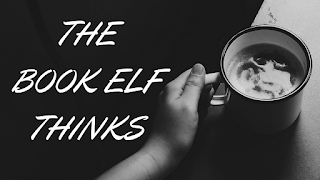Introduction
 |
| Source: Amazon.com |
ISBN: 978-8129147691
Genre: Non-Fiction/ Memoir
Publishers: Rupa Publications
Price: Rs. 295/- ( I got the book for review from the publisher)
Behind the Book
Saved by her grandmother from being killed at birth for having been born a female, Shilpa’s life took many unexpected turns and twists through her early years. She faced abandonment by her mother, the formidable constraints placed on her by her family, and the barbs of village elders bound by hundreds of years of oppressive practices and customs that subjugate women. Shilpa is torn between the contrasting lives she leads: one of servitude and injustice experienced by her family; the other of opportunity and empowerment offered by a good education in a school started by a philanthropist.
Just when all seems settled, an unforeseen death under mysterious circumstances shatters whatever stability remains in her life. Pulled in opposite directions, and torn between despair and dreams, Shilpa finally makes a choice for her future. Is she strong enough to stand up to the people she loves, and pursue what she wants?
At its heart The Elephant Chaser’s Daughter is about hope, when all seems lost. Written with raw honesty and grit, this is a deeply moving memoir of a young girl confronting her ‘untouchable’ status in a caste-based society, and her aspirations for modernity.
Reviews so far:
Kirkus Review: Shilpa was given the chance to transcend her family history and perhaps her own karma. A deft portrayal of a young woman’s growth and courageous transformation through education.
Sir Ken Robinson: Shilpa Raj is a powerful new voice for human dignity and opportunity and against the appalling and demeaning mistreatment of women worldwide. An important and deeply affecting book narrated in a moving and intimate style.
Sri Vishwanath: The Elephant Chaser’s Daughter unveils the secret of transcendence. Shilpa Raj is the future voice for the poor and deprived, uncovering the diamond in the rubble. Read her.
Vanessa Roth: Shilpa’s story speaks for millions of families in a way that is immediate, intimate and personal. Her book will have a powerful impact on the lives and minds of young people around the world.
film director, and winner of Academy Award
Madhu Trehan: Shilpa’s searing, penetrating honesty in the account of her life will change perspectives and impact every reader. It gives hope to the under-privileged and sensitizes the privileged. (Editor-in-Chief, Newslaundry.com)
About the Author
The daughter of a housemaid and an elephant chaser from a South Indian village, Shilpa Raj's life changed dramatically when she was selected at the age of four to attend Shanti Bhavan, a boarding school for poor children.
At sixteen, her need for self-discovery drove her to write this moving memoir of her turbulent past.
Shilpa Raj completed high school with distinction in 2011-the first in her family to do so-and received a Master's degree in psychological counseling.
Have you ever read a book that leaves you with a strange sense of completeness, as if you could have touched the sky, experienced how it felt like being over the moon and then come back to earth? Well, I just did and now I will tell you why did this book make me feel like that.
It is a memoir, like a lot of other memoirs flooding the markets in the recent few months. It is about the struggles of life, like many others you might argue. What sets this book apart is the language. Brilliantly narrated with words arranged beautifully to create a masterpiece is how I saw this book. The words bring out the right emotions at the right place and time, not making you feel overtly done at all. Though we all admire strong and gutsy women, I loved Shilpa for the way she decided to look back at her life. She had two choices. To keep looking back with a constant complaint as to why was God so unkind to her. And the other was to observe. Observe it all, take all the good that came along and pave way for a better future. That is exactly what she did.When you tip toe to see the future and can see nothing but darkness it is human to feel disappointed. But Shilpa comes across as a person who on seeing darkness ahead thought of walking few steps further to see if she got any close to light.
Though there are no twists or turns in the story and the ending is also something that a reader knows before hand. Still there is something magical about this story that keeps you engaged till the very end. There is a sense of pride that starts building in inside you as you reach the climax chapters. After reading the book Shilpa feels like a dear friend, someone whose achievements not only make you proud but also encourage you to keep aspiring, keep dreaming and keep chasing those dreams of yours. For, they will come true someday.
Strongly recommended to each and every person. This book is hope personified.
Foodie Verdict
This book is like Panna Cotta Ice cream - Melts in the mouth and comforts the insides to bring a smile on your face!
 |
| Source: movenpick #icecream |
